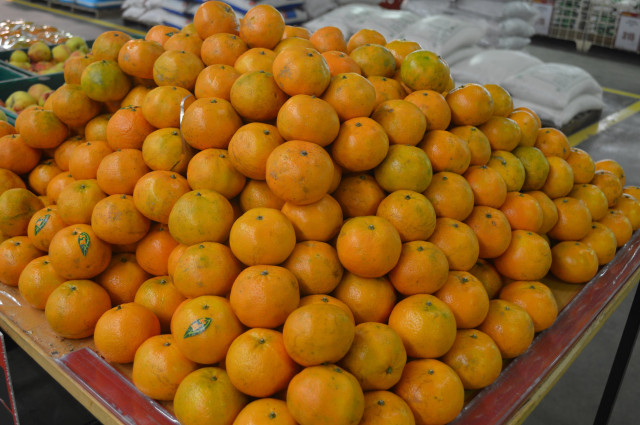Pakistan revises its kinnow export target downwards
Official says hit expected due to high production cost, competition, trade barriers

Official says hit expected due to high production cost, competition, trade barriers. PHOTO: FILE
During the current season, which started from December 1, the association has set an export target of 250,000 tons compared with last year’s exports of 280,000 tons. This means the country would be able to export just 12.5% of its annual kinnow production. This year’s total anticipated production is 2,000,000 tons.
Mango exporters blame airlines for losses
“The decline in export can be attributed to the lack of interest on part of the government of Punjab, high cost of production, stiff competition and various trade barriers imposed by Iran, European countries and Russia,” a press release quoted PFVA former chairman Waheed Ahmed as saying.
The export target of 250,000 tons in the current season would largely depend upon favourable weather conditions and political stability in the country. Recent political noise due to Islamabad blockage has had an impact on trade activities.
Ahmed emphasised the need for immediate action to improve quality of kinnow otherwise the country will eventually lose part of its $200-million annual kinnow exports.
The kinnow industry has been experiencing numerous issues, which has led to consistent decline in its export since 2014-15. Pakistan was able to export 375,000 tons of kinnow in 2014-15.
For the last six years, kinnow has not been exported to Iran, a big market for Pakistan, due to reluctance in the issuance of import permit by the Iranian government.
The demand of Pakistani kinnow in the international markets is on a decline as well due to its poor appearance, too many seeds and infections due to Canker. In 2014, Pakistan had taken an initiative by placing a ‘self-imposed’ temporary embargo on export of kinnow to Europe and the UK and thus averted a likely ban on import by these countries.
Fruit, vegetable exporters get threatening letters
The PFVA said that it has been drawing the government’s attention on the significance of research & development (R&D) for the last several years to improve quality of kinnow. But despite the fact that more than 90% area of cultivation of crops of kinnow is in Punjab, the government of Punjab has not been paying attention to this grave problem, Ahmed added.
Due to the production of small-sized kinnow in abundance, export to Russia has assumed special significance.
Recently, during the fifth inter-ministerial meeting between Pakistan and Russia, it was mutually agreed that greater access would be given to Pakistani agriculture produce and tariff and non-tariff barriers (NTBs) would be removed.
However, the concerned ministries of Pakistan would also be required to play an instrumental role for implementation of this agreement, stressed Ahmed.
The PFVA has demanded a freight subsidy of $2,500 per export container enabling exporters to encounter stiff competition from Egypt, Turkey and Morocco.
To date, 800 kinnow containers weighing 20,000 tons have been exported to Russia, Philippine, Sri-Lanka, Indonesia, Singapore, Saudi Arabia, Canada, Mauritius, Bangladesh, Malaysia, the UAE etc.
Published in The Express Tribune, December 5th, 2017.
Like Business on Facebook, follow @TribuneBiz on Twitter to stay informed and join in the conversation.



















COMMENTS
Comments are moderated and generally will be posted if they are on-topic and not abusive.
For more information, please see our Comments FAQ